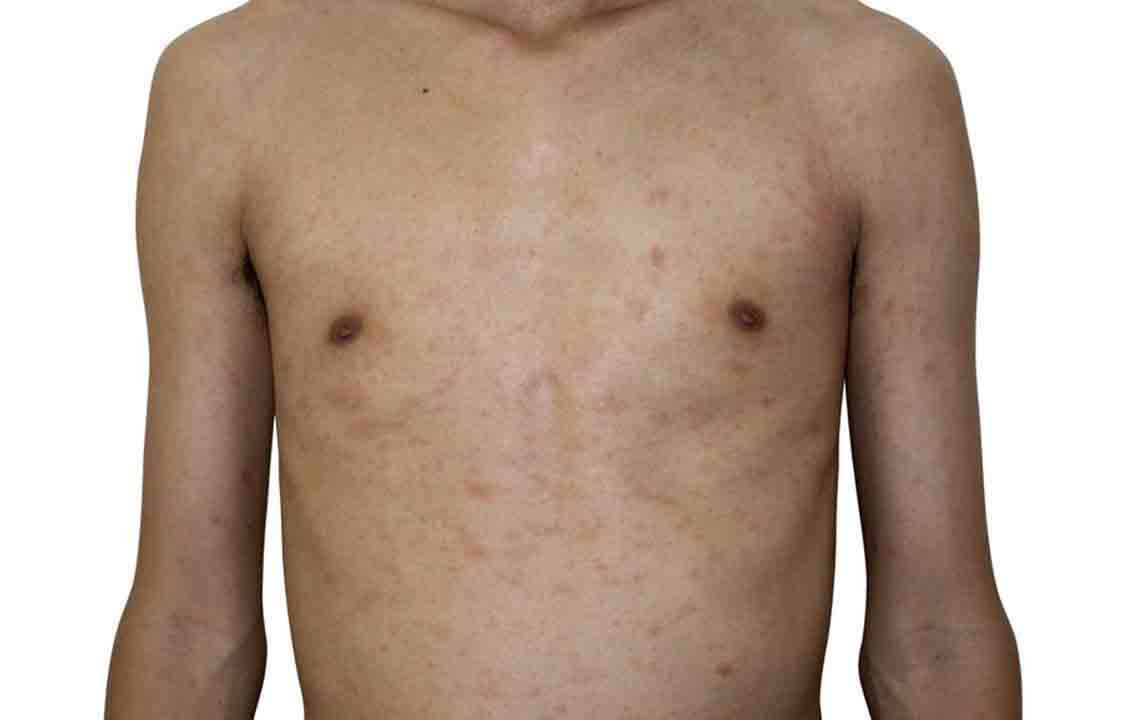Different Types of Pityriasis Rosea Treatments
Pityriasis rosea is a type of skin disease which is quite widespread. This skin condition results in rashes that can be extremely itchy and inflamed, however, they generally don’t cause any pain. Pityriasis rosea begins with a single lesion that gradually transforms into a body rash that can take several weeks to disappear entirely.

The pityriasis rosea patches are oval, and together they might form a tree-like structure. Usually, they affect parts of the body such as chest, back or abdomen. For some patients, there might be additional signs related to flu or upper respiratory tract infection.
Pityriasis rosea treatments
Even though is quite bothersome, pityriasis rosea is not a severe condition and can be handled well with a combination of medications and home remedies. Certain individuals might not even require medical intervention, as the condition might clear up on its own. Nevertheless, it is smart to consult your GP or dermatologist to gain clarity on any doubts. Additionally, some professional assistance might help you to reduce the intensity of the symptoms quickly. Some of the useful treatments for pityriasis rosea are as follows:
- Medications
Usually, pityriasis rosea treatments involve the use of oral antihistamines, antibiotics, and topical corticosteroids. They help with symptoms such as redness, swelling, and itchiness. These medications might also help you sleep peacefully if you are struggling with severe irritation. However, these are only to be taken under a dermatologist’s guidance. This is because unwarranted or prolonged use of such medications might lead to some unpleasant side-effects. - Light therapy
Exposing the affected parts to direct sunlight can improve the skin’s condition by supplying the body with Vitamin D. If natural light is inadequate, then the doctor might recommend you with light therapy, which uses UV light to minimize discoloration and itchiness. - Lotions
Lotions containing zinc oxide can be applied topically to the lesions to mitigate redness and itching. You can easily purchase them from pharmacy stores. If you aren’t sure which products are the best, you can ask your dermatologist for recommendations. - Chemical-free soaps
Use soaps that are free of any irritants or fragrances. Products with chemicals can often aggravate itching, so it is best to use soaps which are mild on your skin. - Cold compression
If you are suffering from inflammation, then you can use ice packs to alleviate it. Using this remedy for several times a day can help you gain temporary relief.
Natural pityriasis rosea treatments
- Oatmeal
You can try using oatmeal for reducing the intensity of the symptoms. It can be boiled in some water, and after it’s cooled down, this soft oatmeal paste can be applied directly to the skin. If you have scaly patches, then oatmeal can help remove them as it an excellent natural exfoliant and even works as a great natural moisturizer for your skin. - Aloe vera
Using fresh aloe vera gel can help the skin to calm and reduce the redness and swelling in the affected parts. You can apply aloe vera gel to the lesions three to five times a day to alleviate the symptoms. - Coconut oil
If you are allergic to moisturizing products comprising chemicals, then you should try using coconut oil. This is a fantastic natural ingredient which has antibacterial properties which can help get rid of the existing rashes and control the spread of pityriasis in other parts. Use this home remedy twice a day for best results.
Apart from the pityriasis rosea treatments mentioned above, you should also take care of a few things. For instance avoid wearing tight clothes, especially made from synthetic fibers or wool. Instead, wear loose clothing that is made of materials such as cotton or linen, so that your skin can breathe. Also, make sure that the temperature in your home suits your body. Excessively humid temperatures can encourage the bacteria to amplify. On the other hand, an unreasonably dry atmosphere can increase the urge to scratch the patches on the skin. Likewise, when you bathe, use lukewarm water instead of hot or cold water. If you wish, you can also use some essential oils while bathing.
If the symptoms of pityriasis rosea don’t seem to subside even after a few months then, it is advised that you immediately consult a doctor. To rule out other health conditions, the doctors might suggest blood tests or biopsy.


